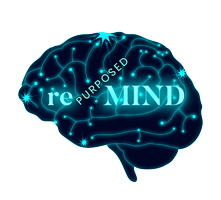What is a Trigger
Triggers are things in your life that cause you to react negatively. This reaction distracts you from the important things in life – your purpose, your current goals, and your focus.
Everyone has something that triggers them, something that bothers them so much that they have an instant reaction. Your reaction may cause you to act out toward others in an undesirable way. It may cause you to turn to bad habits such as doing drugs or overindulging in food or alcohol. It may cause you to harm yourself with negative thoughts, binge-watch TV or cower into laziness. In all cases, it stops you from moving toward your life’s goals.
This often occurs as you are working toward your goals. When you are moving along and suddenly you feel like you can’t keep going, you need to identify the trigger that switched you from feeling like you could succeed to feeling like you cannot. It could be an influence from outside yourself, such as a fight with your wife, or it could be an internal battle, such as a natural inclination to think negatively. Once you understand your trigger, you can recognize when you’re triggered and work toward a more positive response.
Recognize Your Trigger
To recognize your trigger look at the negative response you want to change, and then review what caused that response. For example, what caused you to overindulge in brownies last night? Or what happened right before you picked up that cigarette? What occurred in your day before you yelled at your kids?
You may need more than one point of data; sometimes the trigger is buried deep. We may think it was simply something someone said. However, when you dig deeper you realize it goes back to a feeling of insecurity from your childhood or a realization that you aren’t in control. Sometimes you may need the help of someone on the outside, like a coach, who can help you see the triggers in your life.
Flip Your Response Positive
Have you ever tried to help someone quit smoking? Telling them why smoking is terrible never helps. First of all, everyone knows it’s bad for them that’s why they want to quit, but having a reason why they want to quit is not enough to stop the habit. You have to know why they want to smoke, this is their trigger. Once they understand what triggers them, they can find ways to replace their response with something more positive.
The same thing can happen as you work toward reaching your goals. You could be moving along just fine and then suddenly, something happens and you feel completely unable to continue . . . and you don’t know why.
Something triggered you. Maybe you feel inadequate, or you get angry at your partner or coach. Whatever it was that stops you from seeing your path with an abundance mindset, you need to identify it and regroup.
Once you have identified the trigger, rePURPOSE your Mind by flipping your response. Choose a healthier response you will always do. Think about positive triggers, for example, things that make you smile or give you energy to continue. So if your trigger with smoking is stress, you may decide when you recognize stress that you will eat something healthy, go for a walk, or call a friend. If how someone treats you at work triggers you to feel negative about life, you may decide when you recognize this trigger that you will Force Positive, by texting a friend something positive about your day. Choose something you know you will do.
Act With Purpose
Once you have identified a new response, write it down. This is so you remember the trigger and your new, programmed response. You may even need to write it down every day; then every time you feel triggered, say how you will respond out loud.
Yes. Out. Loud.
Words have power. Their power grows with each action. Writing it down gives your words power. Thinking those words, gives them more power. Saying them out loud gives them even more power. When you hear yourself say those words, it is very difficult to ignore them.
Then Do.
Flip your old response to a new one. As you do this, you will discover that you have rePURPOSED your Mind to the healthier person you want to become. It won’t happen overnight, but every day you act with your new response to your trigger, it will become more natural and easier to do until you find that your trigger disappears.



